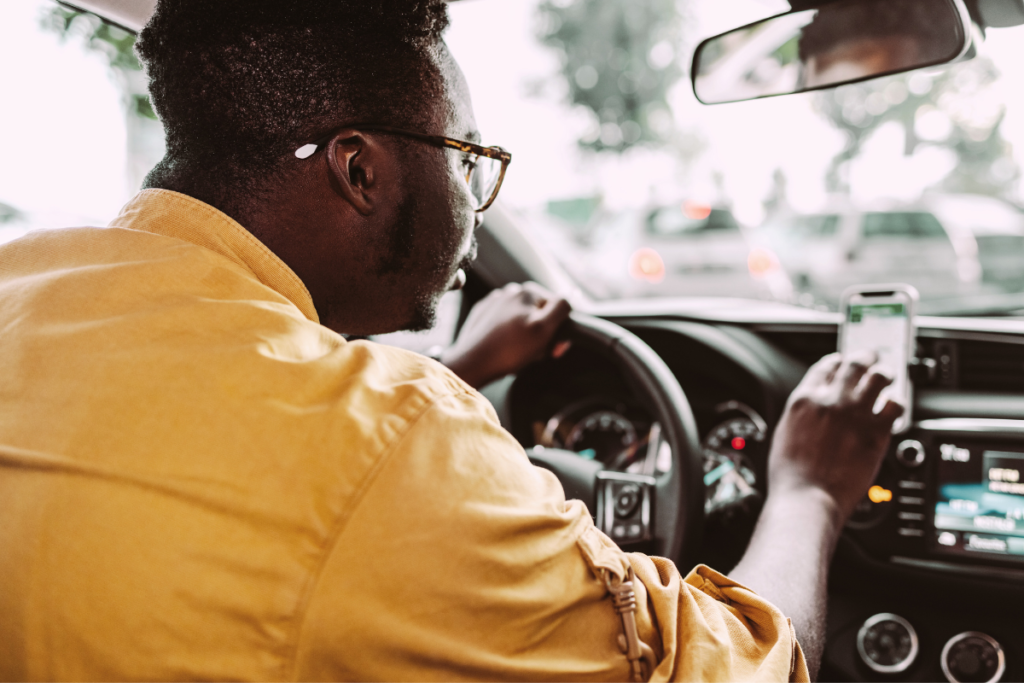Many people have been wondering if it is worth being a driver. Uber in 2024. This is a common question for those considering entering this market. Based on different experiences and scenarios, it is possible to analyze whether this is a good option.

Uber's Beginnings Abroad
Garrett Camp and Travis Kalanick founded Uber in March 2009 in San Francisco, California, to solve a common problem: the difficulty of finding a taxi on a snowy night. With the goal of making urban transportation easier, they used technology to connect drivers with passengers efficiently.
Initially, the first version of the app, called “UberCab,” was aimed at a more exclusive audience, offering rides in luxury cars. It was so successful that in 2011, the company expanded to other cities in the United States and included regular cars, making the service more accessible. They decided to simplify the name to “Uber” beforehand.
Global Expansion
Uber began its international expansion in 2012, launching its service in Paris, France. From there, the company quickly expanded to other cities in Europe, Asia, and Latin America. In order to overcome regulatory and competitive challenges, Uber has adapted its strategies in each new market, but has managed to establish itself as one of the leading transportation platforms in the world.
In many countries, Uber has revolutionized the way people get around by offering a more convenient and often cheaper alternative to traditional taxis. However, the service has faced a number of controversies, including questions about regulation, passenger safety and working conditions for drivers.
The Arrival of Uber in Brazil
Uber arrived in Brazil in 2014, starting its operations in the city of Rio de Janeiro. The service first expanded to other major cities, such as São Paulo, Belo Horizonte and Brasília. The service was immediately accepted by Brazilians, mainly due to its convenience and competitive prices.
However, Uber's entry into Brazil has not been without controversy. From the outset, taxi drivers have strongly resisted the app, seeing it as unfair competition. Demonstrations and protests by taxi drivers against Uber have become common in major cities.
Challenges and Regulation
Uber's operations in Brazil have brought to the fore discussions about the regulation of ride-hailing services. In many municipalities, authorities have implemented specific laws and regulations to control the operation of these services. In 2018, Federal Law No. 13,640 was enacted, regulating the activity of individual private paid passenger transportation in the country.
Still, Uber managed to establish itself in the Brazilian market. Brazil has become one of the company's largest markets in the world. Uber's success in Brazil has certainly encouraged the emergence of other transportation apps, such as 99 and inDriver, increasing competition and benefiting consumers.
Innovation and Social Impact
In addition to offering a new form of urban mobility, Uber has had a significant impact on the economy and society. Most notably, the service has created income opportunities for thousands of drivers, many of whom use the platform as their main or supplemental source of income.
The company has also invested in several innovations to diversify the services it offers, such as Uber Eats, a food delivery service, and Uber Pool, which allows rides to be shared between different passengers. In Brazil, these innovations have been well received, contributing to the company's continued success.
Since its founding in 2009 until its arrival and consolidation in Brazil, Uber has transformed the way people move around cities. With the purpose of facing regulatory challenges and fierce competition, the company has established itself as one of the main players in the ride-hailing market. As a result, Uber's history shows that, with innovation and adaptation, it is possible to revolutionize traditional sectors and create new economic and social opportunities.
Extra income on weekends: a profitable strategy
Working on weekends offers considerable earning opportunities. On a typical weekend, you can earn an average of R$40 per hour. Working 10 hours on Saturday and another 8 to 10 hours on Sunday can earn up to R$1,200 in just two days. This strategy has worked well for many drivers, allowing some to save up enough money to put a down payment on a car of their own.
The reality of working during the week
On the other hand, working as an Uber driver during the week can be quite different. The volume of trips tends to be lower and, often, the earnings do not compensate for the effort. Lack of discipline can also be a problem, causing the accounts to not balance at the end of the month.
For those who have a conventional job with a salary of R$2,000 and already have a paid-off car, working with apps can be worth it as a extra income. However, renting a car can be prohibitive, with costs ranging from R$600 to R$800 per week, not including fuel.
Costs and profits: how to do the math
Assuming a driver drives 3,000 km per month, the fuel cost would be around R$1,500. With a monthly turnover of R$6,000 to R$7,000 and fixed costs of R$3,500 to R$4,000, net income could be tight. Therefore, for those who have a job with a good salary and growth projection, it may not be worth dedicating yourself exclusively to apps.
On the other hand, using your free time after work to spin for a few hours can be a good option. Working from 6pm to 10pm, you can make around R$ 140 per night. Over ten days, this would add up to R$ 1,400, with a net profit of around R$ 800 after deducting costs.
Read more:
- Is it possible to make money TYPING at home? Find out more
- Use the YouTube app to MAKE MONEY with a new strategy
- Earn on your MOBILE with 5 very easy to use apps!
- Fifty reais in two minutes? Check if the profit with this app is real
A practical example: 19 year old
Imagine a 19-year-old, fresh out of high school, who started working at a company and earns R$1,800 per month. Without major financial responsibilities, this young person can rent a car and, with dedication, make a free profit of R$2,000 to R$2,500 at the end of the month. For someone at this stage of life, this extra income can be very significant.
What to expect from the future as a ride-sharing driver?
Work exclusively with applications It is unlikely that you will make a fortune. Drivers who have become rich this way are rare. The flexibility of your schedule is attractive, but it can lead to the need to work even more to make up for the costs. If the idea is to earn extra income, apps can be a good temporary solution, a bridge to something better.
In addition to driving for apps, it is possible to explore other sources of income. Selling products in the car and using social networks to buy and resell products are some of the strategies adopted by drivers.
the reality of applications
Working as a ride-hailing driver can be a good way to earn extra income, but it shouldn't be your only source of income. Before entering this market, it's important to evaluate the costs, goals, and willingness to work. This experience can be used to boost your career and seek better opportunities in the future.
This content aims to clarify common questions about being an Uber driver in 2024. For more tips and valuable information, keep following our publications.



